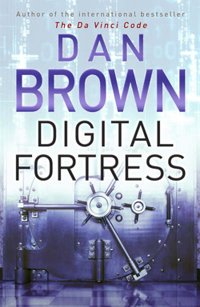Review: Inferno by Dan Brown
I’ve reviewed several Dan Brown books on this site in the past. As I sat down to write this review, my memory was that I’d always pretty much laid into them with unremitting criticism. In fact, that’s not true. I was rather more positive than I remembered being.
Of Digital Fortress, I said:
One knows what one is getting into when one buys a Dan Brown book … Sometimes, it’s just what you’re after.
Of Angels and Demons, I said:
The storyline is good, and it’s an entertaining book.
Of The Da Vinci Code, I said:
It was a fairly enjoyable book … certainly worth reading, but don’t expect a masterpiece.
Looking through the archives, it seems I never got round to reviewing The Lost Symbol, though I remember – perhaps falsely – that reading it was a bit of a trial.
I mention all of this because I approached Inferno with the expectation that I would hate it. I wanted to be amused by Brown’s crazy use of language, and even crazier use of ideology. I wanted to find myself amused at the predictable structure of a art-themed treasure trail, which Robert Langdon would complete just in the nick of time. I was looking forward to writing a scathing and somewhat amusing one-star review.
But, as I read, I unexpectedly found myself enjoying this book. It isn’t high art by any means: Dan Brown’s amusingly clunky leaden prose retains its knack for destroying any semblance of atmosphere, the plot is described and recapped constantly for those who weren’t paying attention, and many of the events are predictable.
But Brown has fixed some of the problems that detracted from his earlier works. By and large, Brown has avoided having hero Robert Langdon deliver long speeches explaining points of art history when he is supposedly in a race for his life. Instead, these are accommodated through a combination of flashbacks, and through delivery by other characters who have no knowledge of the wider plot. This isn’t rocket science, but it does improve things considerably.
Brown also manages to deliver several plot twists in this volume that aren’t obvious from the start. The plot of his previous books is entirely predictable: not so this volume. This makes it far more engaging.
Yet not all of the problems have been solved. Brown still writes hilariously clunky prose:
He half wondered if he might at any moment wake up in his reading chair at home, clutching an empty martini glass and a copy of Dead Souls, only to remind himself that Bombay Sapphire and Gogol should never be mixed.
Brown is still utterly incapable of giving his main characters distinct voices. When he attempts to distinguish the voices of minor characters, he resorts to quite hilarious stereotype:
Sienna, eez Danikova! Where you?! Eez terrible! Your friend Dr. Marconi, he dead! Hospital going craaazy!
And yet, Brown builds an uncharacteristically gripping novel that kept me turning the pages, and had me genuinely surprised by the end. This isn’t a bad effort by any means, and probably reaches the uppermost quartile of “mental chewing-gum” novels.





Inferno is available now from amazon.co.uk in hardback and on Kindle.
This post was filed under: Book Reviews, Dan Brown.

